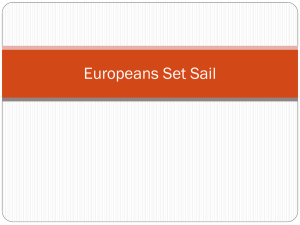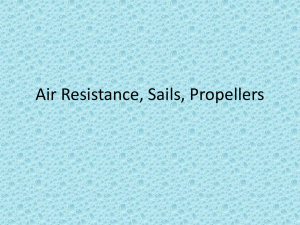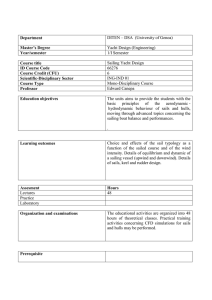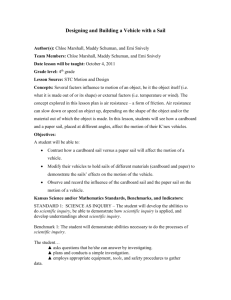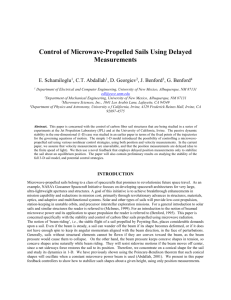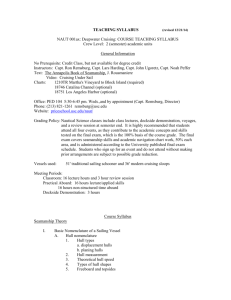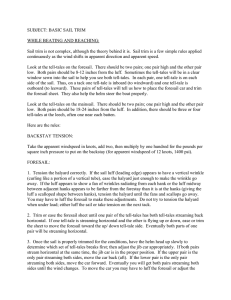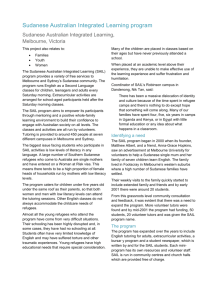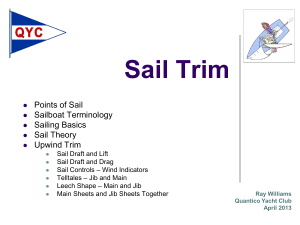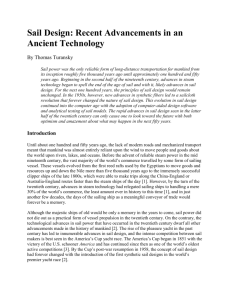After The Sun Sets - Newport to Ensenada
advertisement
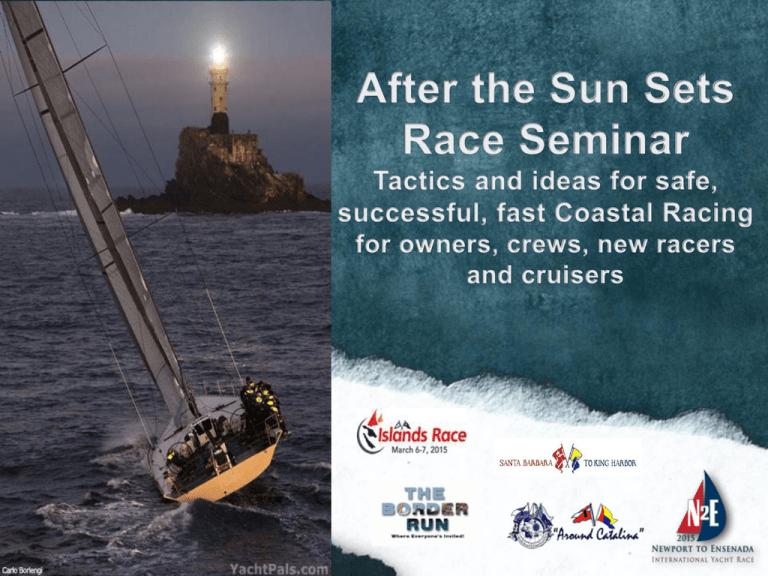
Spare slide format Welcome For years, sailors sought the challenge of racing distances to include the excitement and solice of sailing through the night. What are the new safety requirments? How does the weather change tactics? How do you trim sail in the dark? Is it really as different as day and night? What do crew members need to know? What do you need to know…. Test and familiarize yourself with all emergency equipment Test all emergency equipment and familiarize yourself with its use. Practice emergency procedures, and assign crew to specific roles. Come Prepared Bruce Cooper, Erik Shampain and Keith Magnussen 18 Transpacs 2 Pacific Cups Coastal Cup Victoria to Maui Too many Mexico & Cal Coastal races to count • Over 100k Ocean Racing Miles • • • • • Night Sailing Outline •Dusk How to prepare for the night •Night Vision Quick Guide to Night Vision •Trimming Sails at Night Tips, Techniques and Technology •Crew Watch Schedule How to keep the crew awake! Dusk: Get Ready For The Night Fight • Check the deck Prepare and clean the deck Dusk: Get Ready For The Night Fight • Halyards and Sheets Visually confirm all halyards are clear and all sheets are coiled and able to run freely Dusk: Get Ready For The Night Fight • Be Aware Of Surroundings Get compass bearing & visual of any boats nearby Dusk: Get Ready For The Night Fight • Be Aware Of Surroundings Get compass bearing & visual of any boats nearby Visually get a good idea of where you are and confirm with charts Dusk: Get Ready For The Night Fight • Crew Meeting • Update helmsperson and watch captains of night time game plan: *Eat dinner and clean up before dark *Confirm watch schedule *Headings *Distances from obstacles and shore *Update wind & sail changes & maneuvers in log book *Discuss upcoming scenarios with wind strength and direction *Check the keel & rudder for kelp or trash Dusk: Get Ready For The Night Fight Quick Guide to Night Vision • Wear sunglasses and sun hat during the day. • Use red light bulbs in flashlights and cabin lights at night. • Dim screens on navigation instruments and turn off unnecessary electronics. • Have a black-out curtain in the companionway • Headlamp with red lens (red marker) Sail Trimming at Night • Establish trim points & mark sheets during the day. • Genoa’s sheets w/ tape near winch to determine trim off spreaders • Spinnaker sheets w/ tape for guaranteed same trim after grinding or collapse. • Main trim by heel angle. Sail Trimming at Night • Glow in the dark draft stripes • Glow in the dark spinnaker chevrons • Reflective draft stripe material on batten ends Sail Cleaning/Washing • Salt adds a lot of weight Dried, salty .5oz. cloth weighs the same as clean 1.5oz cloth which gives away the advantage of the lighter sail. • Squalls = Moisture, • Moisture = Weight, • Weight = Stress on Sails Going Too Slow ? Not “On Target” ? • Know your target boat speed for the wind conditions • The #1 reason is the sails are trimmed in too much… Particularly true in light air Remember the wind usually clocks aft Trim at Midnight is different than at 10 PM • “When In Doubt…Ease It Out” Check the knot meter & GPS Going Too Slow ? Not “On Target” ? • Know your target boat speed for the wind conditions Your sails are your friend • Prep them well - Inspect, Repair, Clean and Fold • Take care of them during the race - Keep them folded and organized • Change before it’s too late - Better to switch than to blow up • Have FUN and sail FAST! Sail fast and safe at night… “you will be happy to see your hardwork pay off in the morning!” Weather Planning HAVE A GENERAL PLAN Look at the Trends Finding the Fronts One of our main sources of wind comes from frontal systems. These large scale frontal systems, commonly referred to as storms, can generally be identified by tightly packed isobars (the black lines on the chart below, connecting areas of equal pressure) on a sea surface weather chart. The tighter the isobars are packed together, the stronger the wind is within a storm. Be sure to observe how these systems are moving leading up to the event. DIAL IT IN LOOK AT THE LOCAL HIGH RESOULUTION WIND MODELS & DRAW ON LOCAL KNOWLEDGE TAKE NOTES KEEP A RACING JOURNAL DOCUMENTING FORECASTS AND ACTUAL CONDITIONS NOTING ANY LOCALIZED WEATHER EVENTS AND WIND DIRECTIONS. MATCH WIND DIRECTIONS AND SPEEDS WITH SAIL CHOICES AND LOOK AT WHAT WORKED BEST FOR BOAT HAVE FUN. SAIL FAST. Spare slide format

